Porcelain vs Ceramic Tile
Explore where and why one of these popular tile choices makes more sense than the other…
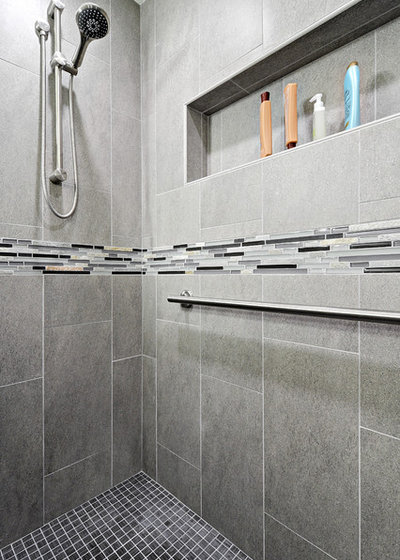
Remember, the TCNA defines porcelain as tile that absorbs less than 0.5 percent of moisture. Why doesn’t porcelain absorb much moisture? According to the TCNA, porcelain is naturally dense, which means it’s harder to penetrate. In other words, it’s nearly waterproof. This property makes porcelain a no-brainer for bathroom installations, as well as other areas of your home that are exposed to moisture.
This doesn’t necessarily mean that ceramic is a bad choice for bathrooms. In fact, many homeowners install ceramic in their showers and on their bathroom floors. However, porcelain’s impermeability will ensure you have the best protection against moisture.
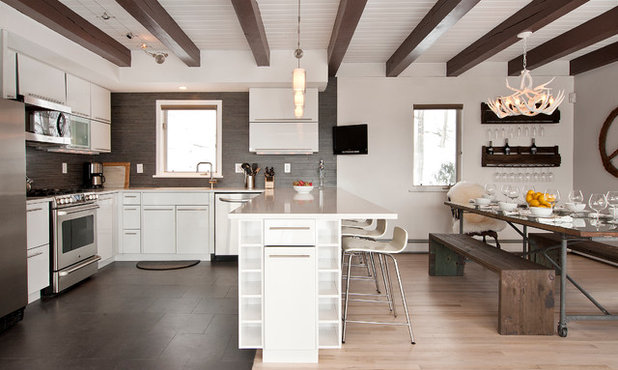
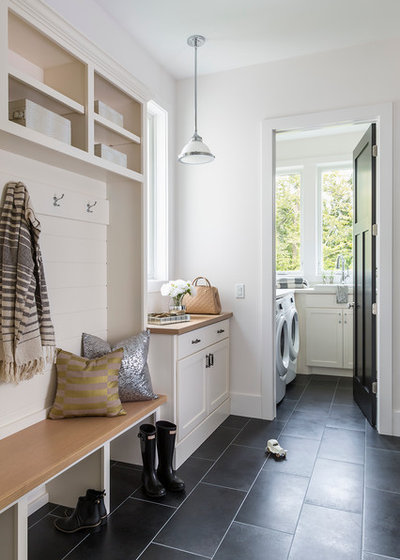
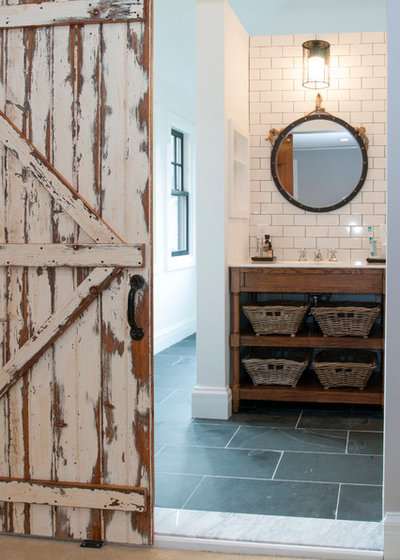
Not all porcelain tile is costly, but if you shop around long enough, you’ll start to notice a trend: It’s generally more expensive than ceramic is. If you’re on a tight budget, ceramic will fit the bill. It’s difficult to find a quality porcelain tile under $3 per square foot; high-end porcelain tile will easily surpass $5 per square foot. Ceramic, on the other hand, seldom costs more than $4 per square foot, and there are plenty of affordable styles under $2 per square foot.
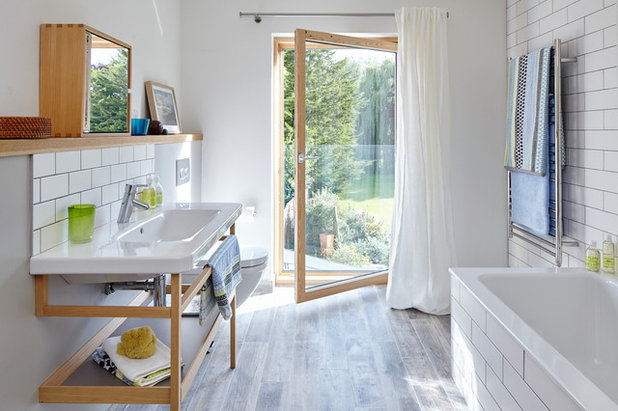
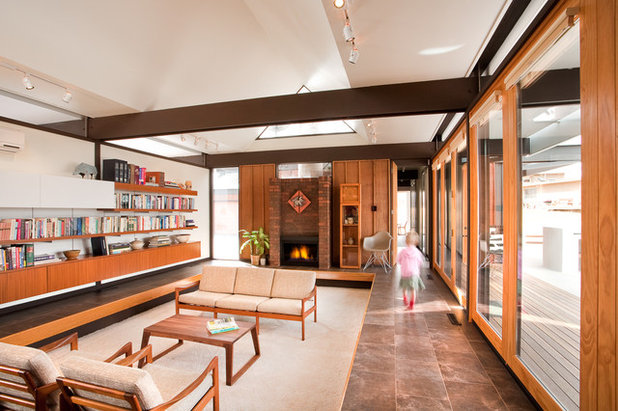
The best pick: PorcelainBoth ceramic and porcelain excel in high-traffic areas in comparison with other flooring types (such as hardwood, laminate and carpet). But porcelain is a denser tile, and as a result it offers better long-term resistance to scuffs and scratches. Through-body porcelain, where the color on top of the tile goes all the way throughout the tile’s body, is especially scratch resistant. Living rooms and hallways are two of the perfect places to install porcelain. Households with children and pets will appreciate porcelain’s durability.
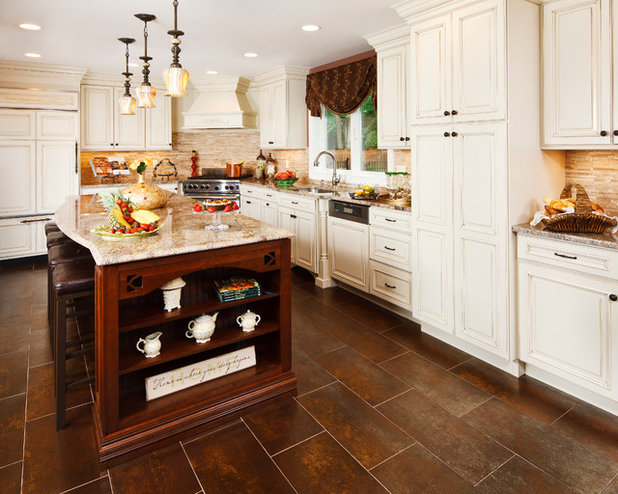
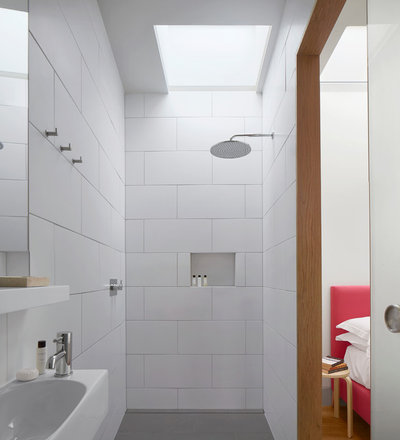
Density isn’t always a perk. Ceramic is easier to cut and install than porcelain is. According to the TCNA, non-porcelain tiles are easier to affix to the floor than porcelain tile. If you’re planning to install tile yourself, especially in a situation where many cuts are required, you could find yourself in hot water. The job could quickly turn sloppy, and you may dish out more money to have a pro correct your mistakes.
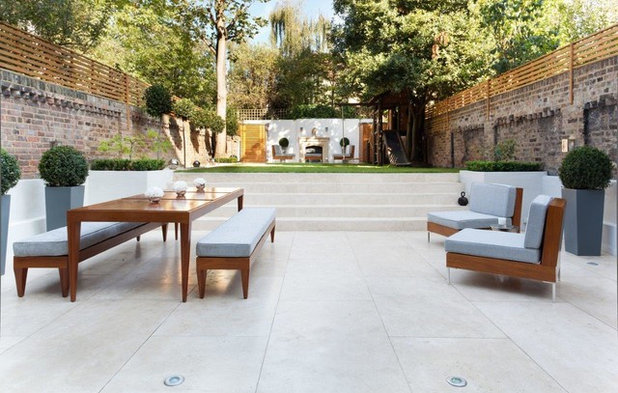
When it comes to patio flooring, the great outdoors can be unforgiving. This is another scenario where porcelain’s impermeability wins. When ceramic tile freezes, it absorbs moisture. This causes ceramic to expand and break. You could be looking at a flooring replacement much sooner than expected.
If you live in an area that is prone to hard freezes, ceramic tile is out of the question for an outdoor space. If you live in a climate where freezes are occasional or uncommon, ceramic is risky at best. Carefully weigh your decision when deciding between porcelain or ceramic.
Tags: #AirdrieAlbertaHomesForSale, #AirdrieAlbertaLiving, #AirdrieAlbertaRealEstate, #AlbertaCanada, #AlbertaCanadaHomesForSale, #AlbertaCanadaLiving, #AlbertaCanadaRealEstate, #AltadoreAlberta, #AltadoreAlbertaHomesForSale, #AltadoreAlbertaLiving, #AltadoreAlbertaRealEstate, #CalgaryAlberta, #CalgaryAlbertaHomesForSale, #CalgaryAlbertaLiving, #CalgaryAlbertaRealEstate, #CalgaryRealEstate, #ChestemereAlberta, #ChestemereAlbertaHomesForSale, #ChestemereAlbertaLiving, #ChestemereAlbertaRealEstate, #HowardListedIt, #HowardListedItYYC, #HowardSoldIt, #HowardSoldItYYC, #HowardTeamYYC, #JustListedYYC, #JustSoldYYC, #ReMaxHouseofRealEstate, #TheHowardTeamCalgaryAlberta, #YYCHomes, #YYCLife, #YYCLifestyle, #YYCLiving, #YYCMarketWatch, #YYCRE, #YYCRealEstate, TheHowardTeam, yyc
